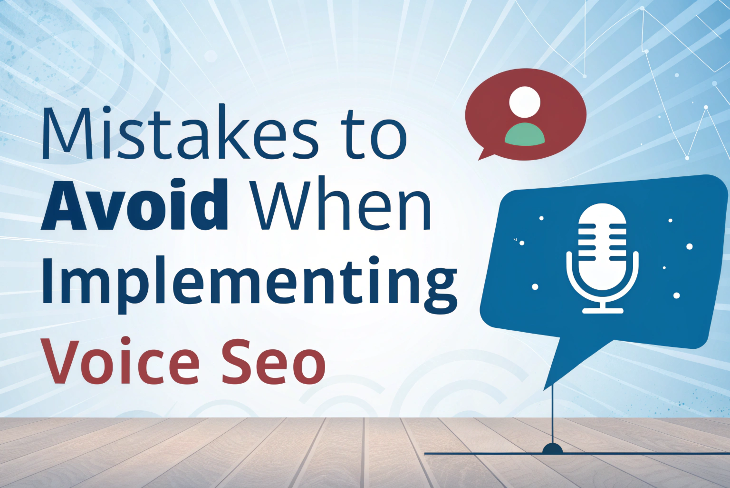Our Voice SEO services optimise your content for the way people search with voice assistants like Google Assistant, Siri, and Alexa. We focus on natural language queries, featured snippets, local optimisation, and structured data to increase your chances of being the spoken answer.
SEO Booster
£495.00 Original price was: £495.00.£375.00Current price is: £375.00.
- Web page SEO analysis
- Content rewrite - 1 page
- Full website audit
- 3 blog posts of 500+ words each
- Ranking check for 10 keywords
- Backlink analysis
Ai SEO
£600.00 Original price was: £600.00.£485.00Current price is: £485.00.
- Content optimisation with Ai
- Predictive competitor analysis
- Automated on-page audits
- Backlink opportunity identification
- Ai-enhanced local SEO
Voice SEO
£800.00 Original price was: £800.00.£645.00Current price is: £645.00.
- Conversational keyword research
- Schema markup for voice
- Mobile-friendly enhancements
- Natural language processing (NLP) optimisation
- Detailed strategy report
- 2 blog posts
- Frequently asked questions
Voice SEO is the process of optimising your website’s content to rank higher in voice search results. With the rise of smart speakers and voice assistants like Siri, Alexa, and Google Assistant, more users are turning to voice search for convenience and speed. Voice search queries tend to be more conversational and longer than traditional text-based searches, which means your content needs to match that style.
By focusing on conversational keywords and natural language and providing clear, direct answers, businesses can ensure they stay visible in this growing area. Voice SEO not only helps improve your site’s rankings but also ensures you meet the needs of modern, on-the-go customers.
If you want to stay ahead of the competition and capture voice search traffic, our expert team can help you optimise your website with cutting-edge voice SEO strategies. Let us take care of your SEO needs so you can focus on growing your business!
What are the benefits?
Increased visibility
Voice search is on the rise, and optimising for it helps your business appear in more search results, particularly in featured snippets or position zero. This strategy positions your brand prominently when customers conduct voice searches, resulting in an increase in organic traffic.
Enhanced user experience
Voice searches are conversational, and optimising for them means providing direct, clear answers to users' questions. This improves your website’s user experience, making it easier for potential customers to find exactly what they need quickly.
Stay ahead of competitors
As voice search becomes increasingly popular, businesses that adapt early will have a competitive edge. Voice SEO ensures you don’t get left behind in an ever-evolving digital landscape, positioning your business as a leader in your industry.
Check out our other SEO services

Key Voice SEO elements
- Question-cased content: Format content around common questions (e.g., “How do I…?” or “What’s the best…?”) to align with voice search queries.
- Conversational tone:Write in a natural, human-like way to match the way users speak to voice assistants.
- Long-tail & intent-based queries: Focus on search intent, optimising for both informational (“What is…”) and transactional (“Where can I buy…”) queries.
- Voice search analytics: Track and analyse voice search performance to refine content strategies.
- Multi-platform optimisation: Ensure content is optimised for various voice assistants, like Siri, Alexa, and Google Assistant.
Best practices for voice SEO
Implementing these best practices will ensure your website ranks higher in Google search results:
Optimise for natural language
Tailor content for conversational voice searches using long-tail, question-based keywords that that align with how users ask questions verbally.
Focus on local search
Use relevant location-based keywords, claiming and optimising your Google My Business listing, and ensuring consistent NAP (Name, Address, Phone Number) accuracy on all platforms.
Provide clear, concise answers
Provide quick, direct answers to common questions to boost your chances of appearing in Google's featured snippets and increase visibility in search results.

Mistakes to avoid
Getting voice SEO right means steering clear of common pitfalls that can hold your business back. By tackling the issues below, you’ll boost visibility, capture more local traffic, and make your content easier for search engines, and people, to use.
- Ignoring conversational keywords: Voice searches sound more like everyday speech than typed queries. Relying only on short, generic keywords means you’ll miss out. Instead, focus on long-tail, natural language phrases that reflect how people actually talk.
- Overlooking local optimisation: Since many voice searches are location-based, failing to optimise for “near me” searches is a big mistake. Keep your Google Business Profile up to date and weave local keywords naturally into your content.
- Slow page load speeds: If your site drags, it won’t perform well in voice search. Use caching, image compression, and streamlined scripts to keep things fast, especially for mobile users.
Google’s algorithm impacting voice SEO
Google are always changing/updating their algorithms and this effects many different types of SEO and how we provide the service to you. Below are just some of the ways that Google’s ever-changing algorithms can effect voice SEO:
BERT & natural language processing (NLP)
Google’s BERT algorithm helps the search engine understand conversational language better, meaning voice search content must be written naturally and contextually relevant.
RankBrain & search intent
RankBrain prioritises user intent, so content optimised for voice search must directly answer questions in a clear and relevant way.
E-E-A-T (Expertise, Experience, Authoritativeness, and Trustworthiness)
Google ranks high-quality, credible content higher in search results, making authoritative and well-researched content crucial for voice SEO success.
Page speed & mobile usability
Google’s Core Web Vitals and mobile-first indexing prioritise fast, mobile-friendly websites, which directly impact voice search rankings.
Featured snippets & position zero
Google often pulls voice search answers from featured snippets, so structuring content to target position zero is key for visibility.
Want to optimise your site for voice searches and stay ahead of Google’s ever-evolving algorithms? Our SEO experts can help you rank higher and drive more traffic!
FAQ's
Your voice SEO questions answered
Why is voice SEO important?
Voice SEO is crucial because the rise of digital assistants like Google Assistant, Siri, and Alexa has changed the way people search online. Voice search queries are often longer, more conversational, and location-based, so optimising them helps businesses remain visible and competitive. With more users relying on voice search for quick answers, businesses that embrace voice SEO are better positioned to capture relevant traffic and improve user experience.
How can you optimise for a voice search?
To optimise your voice search, focus on the following:
- Use long-tail keywords and question-based phrases that reflect how people speak.
- Ensure your website is mobile-friendly and loads quickly, as most voice searches happen on mobile devices.
- Optimise your local SEO with accurate business information and location-based keywords.
- Structure content to answer common questions concisely, making it easy for voice assistants to pull your information.
- Implement schema markup to help search engines understand and display your content effectively.
How does voice search SEO differ from traditional SEO?
Voice search SEO differs from traditional SEO in the following ways:
- Query structure: Voice searches tend to be longer, more conversational, and phrased as questions (e.g., “What’s the best restaurant near me?”) compared to shorter, typed queries.
- Focus on local: voice searches are often location-based, so local SEO is more crucial in voice search optimisation.
- Answer formats: Voice search prioritises direct, concise answers that can be read out loud, while traditional SEO often targets broader content, like blog posts or long-form articles.
- Device usage: Voice search is heavily used on mobile devices and smart speakers, whereas traditional SEO focuses on desktop search experiences.
Is voice search the future of SEO?
Yes, voice search is increasingly becoming the future of SEO. As smart devices become more integrated into daily life, voice searches are expected to account for a larger share of all searches. Optimising for voice search now can position your business for long-term success by improving visibility, enhancing user engagement, and adapting to evolving search habits.






